Trinity’s ‘Day of Digital Scholarship’ Showcases Use of Technology in Research, Art, and More
Trinity’s Library and Information Technology Services (LITS) recently hosted its annual Day of Digital Scholarship, designed to celebrate the use of technology in research and teaching projects created by faculty, staff, and students.
“We wanted to create an opportunity for digital scholars to meet and appreciate each other’s work, and to invite members of our community unfamiliar with digital work to be inspired to try it themselves,” said Digital Scholarship Coordinator Mary Mahoney ’09, who helped to organize the April 21 event.
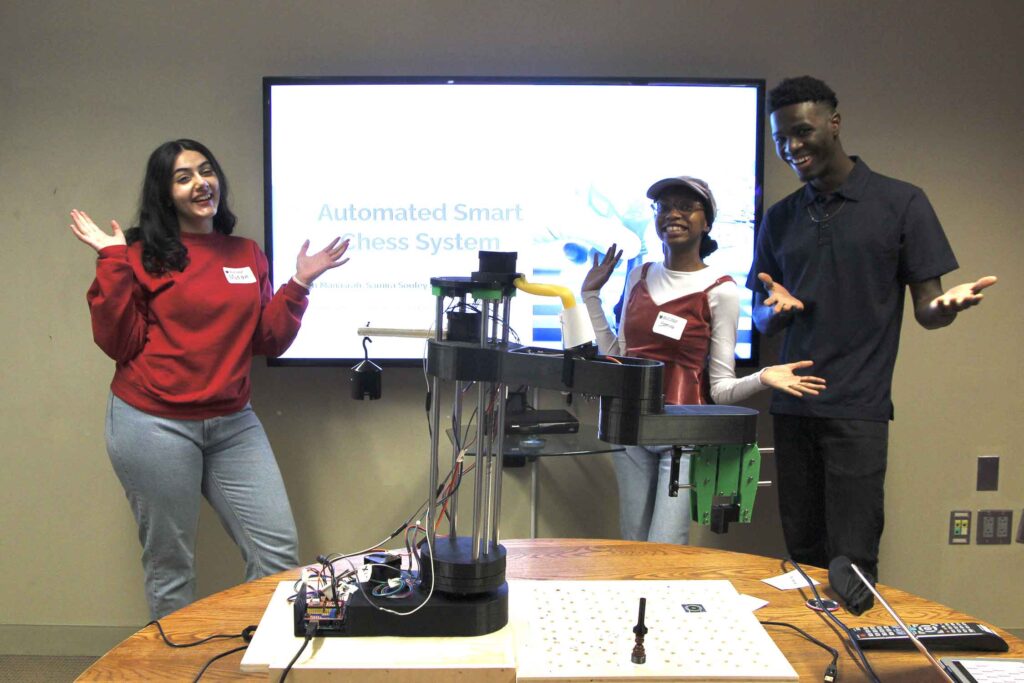
While there are many definitions of digital scholarship, Mahoney said that it can mean any kind of scholarly process or work created using digital tools, technologies, research methods, or platforms such as 3D printing, coding projects, data visualization, digital exhibits, mapping projects, podcasts, and websites. It can be individual or collaborative, simple or complex, and may result in physical or digital output.
Mahoney, whose previous role at Trinity was as an Andrew W. Mellon Postdoctoral Fellow in Digital Humanities beginning in 2018, works with instructional technologists and librarians to support digital learning at Trinity. Several LITS staff members bring specialty areas of expertise to their work promoting digital scholarship on campus. “We have seen increases in assignments incorporating 3D printing, mapping, podcasting, timelines, and other forms of digital work across disciplines,” Mahoney said. Learning a skill such as WordPress web design, geographic information system (GIS), or data visualization offers students the opportunity to think with technology and create work they can include in portfolios or resumes. The process of making digital work also invites students to consider design choices, in addition to considerations of content and analysis. “This workflow helps students find as much value in the process of creating digital work as in the product,” Mahoney added.
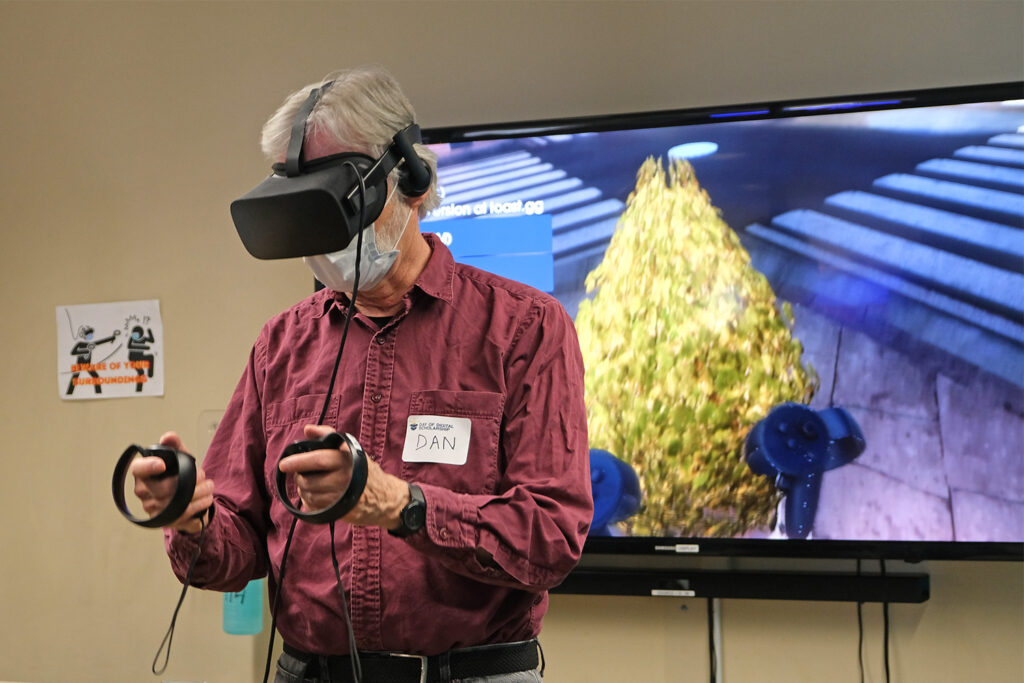
At this year’s event, digital scholarship faculty fellows shared the culmination of their work. Funded by the Mellon Foundation, this fellowship offers faculty exposure to different approaches in digital scholarship through monthly meetings and workshops.
Associate Professor of International Studies Janet Bauer previewed storymaps that will be part of Trincoll Gender Stories website at the event. Trincoll Gender Stories was initiated to archive the Trinity community’s stories around the creation and transformation of college programs and initiatives that address the gender and re-gendering of the campus, from past President’s Special Councils on Women, the Women, Gender, and Sexuality Program, and the Women & Gender Resource Action Center, to the introduction of women’s sports and transformations in the curriculum.
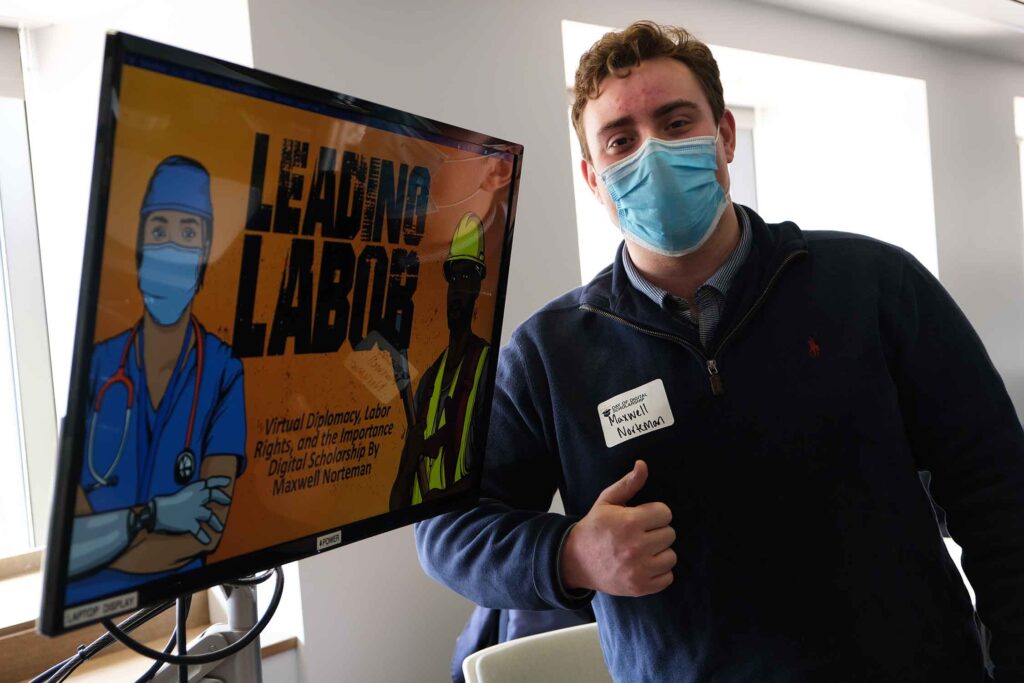
“Students and I began this project by digitizing program materials and interviewing senior faculty members who had participated in a variety of efforts in the 1970s and 1980s, only to realize that these were stories that involved the interwoven efforts of not only faculty, but also staff and students, whose recollections also needed to be recorded and archived,” said Bauer. “Digital platforms provide one way to archive collaborative student-faculty research materials and share them with local communities. Doing so reminds us of our reciprocal relationships with, and responsibilities to, the communities in which we work, provides an opportunity for students and faculty to engage broader communities in conversation, and generates new forms of knowledge.” This semester, two of Bauer’s classes are working on collaborative storymaps that will be added to the Trincoll Gender Stories website.
For some students, the chance to use digital tools in course work has turned into a professional opportunity. GiGi Hernandez ’22, who majors in theater and dance, creates sketches for Assistant Professor of Anthropology Amanda J. Guzman’s website about digital humanities.
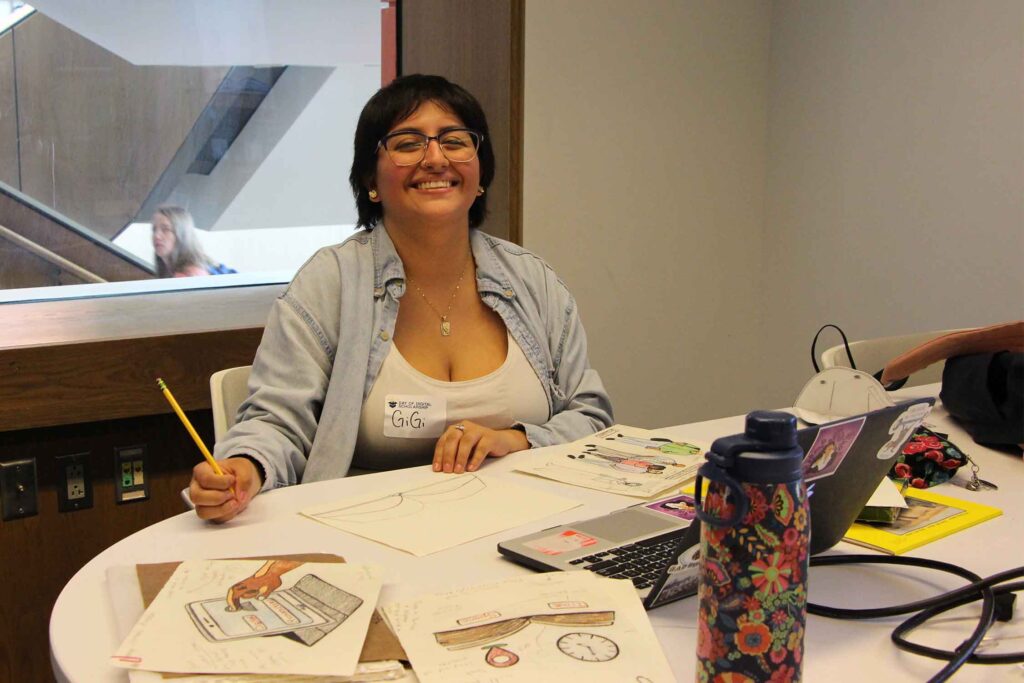
Hernandez said, “Although my session [during the Day of Digital Scholarship] was live-sketching with paper and pencil, it is nice to show people how I go about creating my work, because it is important to show the arts in different fields and really showcase the work that students are doing around campus. This is literally a dream come true and is a blessing to be able to create art for people and help make their visions come to life.”
In addition to the work on display during the Day of Digital Scholarship, The Incubator is a digital scholarship showcase designed to highlight how Trinity community uses technology in innovative and creative ways. “Our goal with The Incubator is to offer examples that can encourage others who might be interested in embarking on their own digital work,” said Mahoney. The Trinity community has access to resources such as 3D printing lab, virtual reality equipment, story lab recording studios, and Trinity Domains hosting site which gives faculty, students, and staff access to free web hosting and software including WordPress.
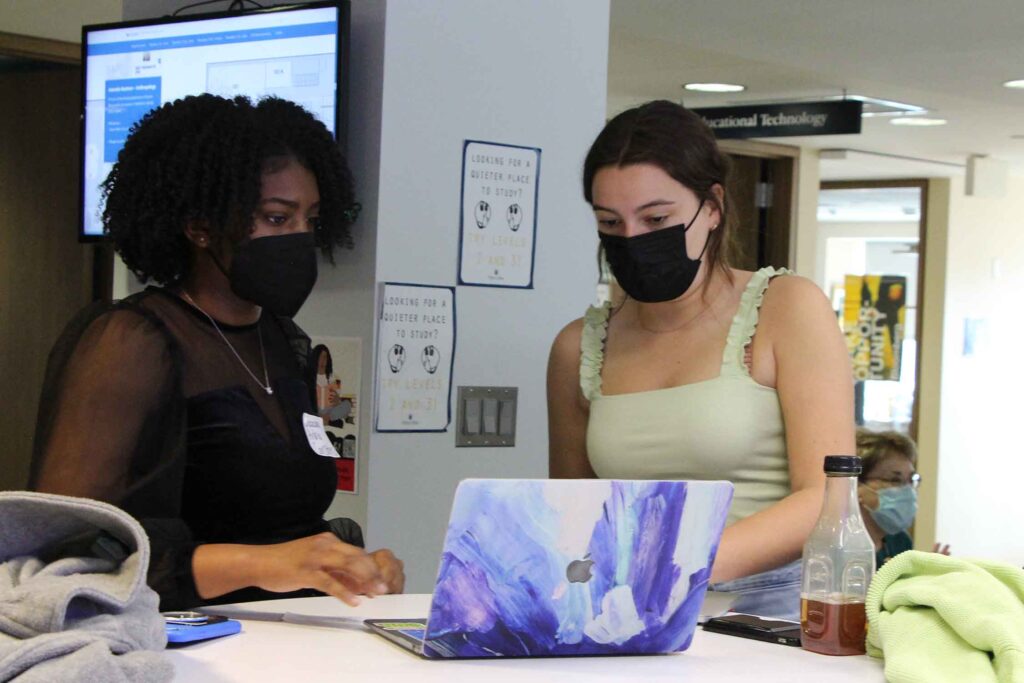
Mahoney noted that such technology was not available when she was an undergraduate at Trinity. “It is cool to be back here now and support great work with technology in so many different disciplines. My own work is in history and podcasting, and I love the chance to share that with faculty and students and support them in making their own projects,” she said.
An important aspect of digital scholarship is its focus on process as much as product, Mahoney said. “Our event is designed to offer scholars an opportunity to show works in progress, in addition to completed works. It is our hope that this is a space to get meaningful feedback on digital work,” she added.
Read more about all the projects presented at the 2022 Day of Digital Scholarship here.
Learn more about digital scholarship at Trinity here.
